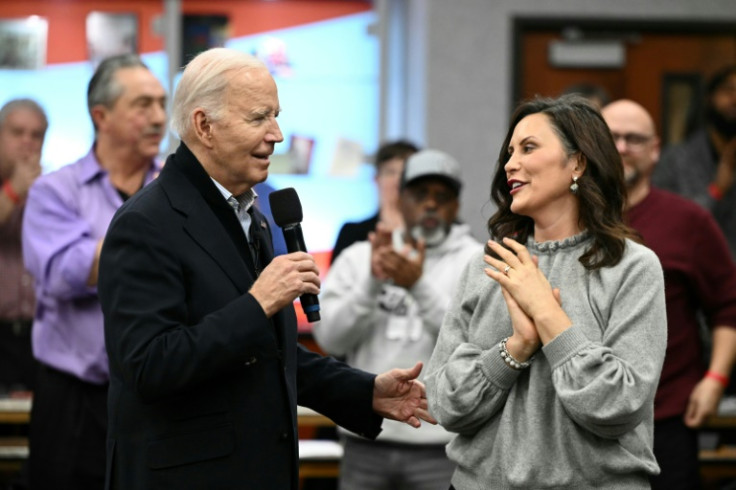
Elections across the world are changing across the world with the advent of AI deepfakes. While in India signs of it were already visible in local elections where dead leader's voices were used to influence voters, the people in the UK are staring at an inevitable influence.
A top minister from the Rishi Sunak government has warned that AI-generated deepfake videos could be used by people to influence the upcoming general elections.
Speaking to IT experts and Silicon Valley bosses, UK Home Secretary James Cleverly stressed how AI deepfakes could create a storm ahead of the 2024 elections. According to Cleverly, deepfake videos are here and already in action all over the world, disrupting elections.
The Home Secretary has warned social media users not to be swayed by AI-generated videos on social media platforms. Cleverly explained a possible like to Russia and Iran, as these UK adversaries could be looking to disrupt UK elections. However, it might not be a British-centric attack as half of the world is going to elections in 2024, including the EU, the US and the UK.
The Home Secretary told The Times that AI-generated content is increasing "the battle of ideas and policies" and it is taking place "in the ever-changing and expanding digital sphere".
Cleverly called for transparency and safeguards for users in AI-generated content like deepfakes.
"The questions asked about digital content and the sources of digital content are no less relevant than those asked about the content and sources at dispatch boxes, newsrooms, or billboard ads," the UK Home Secretary said.
This concern for AI deepfakes is voiced by other British politicians cutting across party lines as the Labour and the Tories united in opposing it. London Mayor Sadiq Khan also rang the alarm bell against deepfakes as the election is closing in.
Earlier in 2023, an AI-generated video was circulated in the media where Sadiq Khan was seen making remarks about protests before Armistice Day. According to the Mayor of London, current regulations on deepfakes are ineffective in controlling it.
A similar thing has happened in India, where voters in the local legislative elections in the Southern state of Telangana saw a seven-second clip of KT Rama Rao of the Bharat Rastra Samiti ruling party calling for votes for the opposition Congress party.
The opposition party shared the deepfake video on a Twitter post and circulated it in WhatsApp groups, generating 500,000 views on the official account of the party on X.
Earlier in February 2020, an MP from India's ruling party the Bharatiya Janata Party, Manoj Tiwari allegedly became the the world's first leader to use deepfakes for election campaigning as he launched three videos in three different languages (Hindi, Haryanvi and English) to reach out different multicultural audiences. Of these, only the Hindi video was authentic, the other two were deepfakes. Here AI was used to alter his expression, voice and words to match the attributes of those languages and cultures.
Recently, a former Chief Minister of a Southern Indian State, Tamil Nadu M Karunanidhi has been resurrected from death to create a deepfake video to influence voters.
At present India doesn't have any AI regulation, especially for deepfakes like these and experts think they could affect the integrity of the country ahead of the elections as campaigns are getting wider outreach, influencing people at the regional level.
London Mayor Sadiq Khan spoke of this when he urged for a robust AI legislation saying it isn't an AI policing issue but an AI regulation and legislation issue.
"My worry is, in a close election, a close referendum, these sorts of deepfake videos and audios can be the difference, but also my concern is, there are sometimes examples where these sorts of deepfake audios can lead to serious disturbances, particularly when emotions are running high," said London Mayor Sadiq Khan.
This comes at a time when the UK government has launched a white paper on AI regulation in the UK.
As the world is moving to an election year, several tech giants have come together to work against the misuse of generative AI. Companies like ChatGPT maker OpenAI, Meta, Google, Microsoft and others are collaborating to stop the deceptive use of AI. But so far the tech giants have stopped short of banning deepfake videos.
Earlier this month, the CEO of Microsoft Satya Nadella said there is enough tech in place to prevent deepfakes like watermarking AI-generated content for the US elections.
Meanwhile, Meta has revealed that it is setting up a dedicated way to tackle AI misuse and misinformation campaigns in Europe ahead of the EU parliamentary elections in June but concerns remain about voters' influence.
The tech giant is working with 26 independent fact-checkers who work in 22 languages across the EU to flag disinformation on its platform.
The Head of EU Affairs at Meta, Marco Pancini said: "As the election approaches, we'll activate an Elections Operations Center to identify potential threats and put mitigations in place in real-time."







